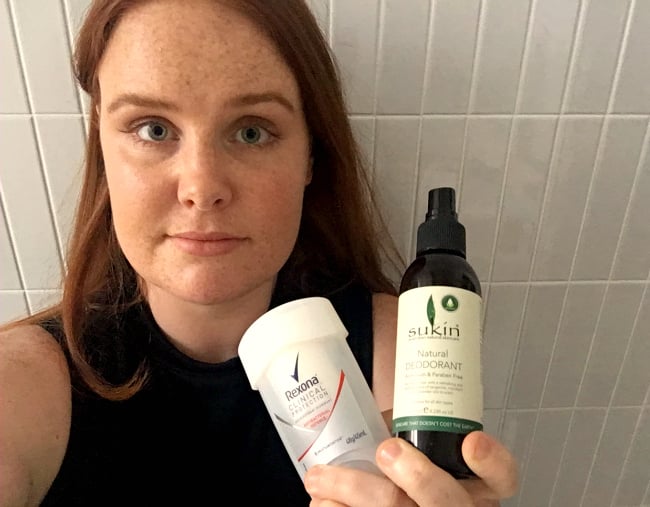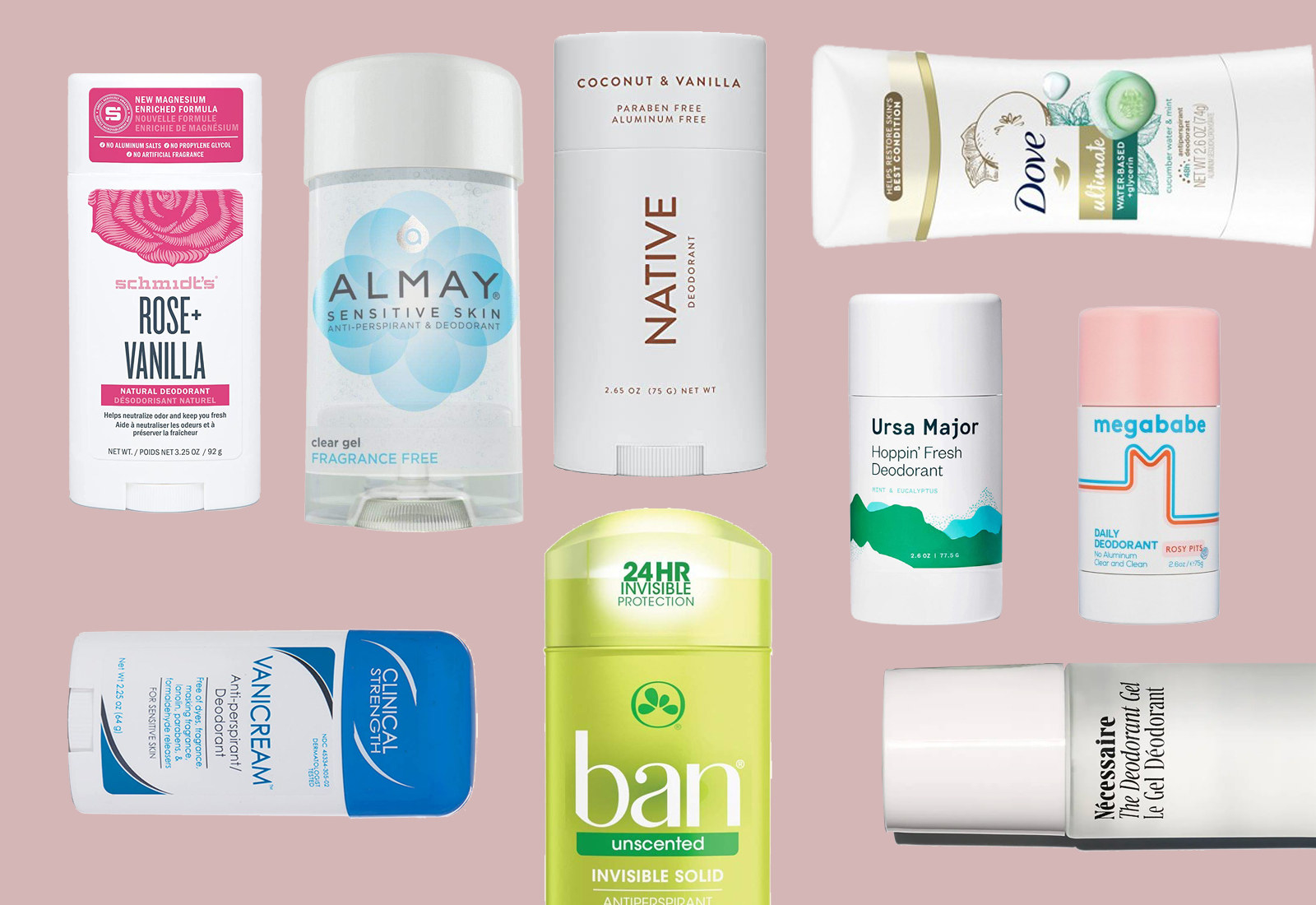Clinical Deodorant Vs Regular: Unpacking The Smell Battle
Let’s talk about sweat—and not just the kind you wipe off after a gym session. We’re diving deep into the world of deodorants, where clinical deodorant is squaring off against the regular stuff. If you’re wondering which one deserves a spot in your bathroom cabinet, you’re in the right place. This isn’t just about stopping sweat; it’s about understanding what works best for your body and lifestyle.
Now, I get it. Walking down the deodorant aisle can feel like walking into a maze. There’s so much choice, from your basic stick deodorants to high-tech clinical formulas. But here’s the thing—when you sweat excessively or deal with stubborn odor, it’s not just about picking something off the shelf. You need solutions that actually work, and that’s where the clinical vs regular debate comes in. Stick with me, because we’re about to break it all down.
Think of this article as your ultimate guide to navigating the deodorant jungle. We’ll cover everything from what makes clinical deodorant different to why you might want to upgrade from your regular roll-on. By the end, you’ll know exactly what to look for—and more importantly, what to avoid. So, let’s get sweaty and dive in!
Read also:Feacutelix Marzell A Journey Through Time And History
Table of Contents
- What’s the Difference Between Clinical and Regular Deodorant?
- Breaking Down the Ingredients
- Which One Wins in Effectiveness?
- Understanding Your Sweat Types
- Benefits of Clinical Deodorant
- Possible Downsides of Clinical Formulas
- Why Regular Deodorant Still Has Its Place
- When to Use Clinical vs Regular?
- Top Brands to Consider
- Final Thoughts
What’s the Difference Between Clinical and Regular Deodorant?
Alright, let’s start with the basics. Clinical deodorant and regular deodorant might look similar on the surface, but they’re worlds apart when it comes to what they’re designed to do. Regular deodorants are like the entry-level players—they’re affordable, easy to find, and do a decent job for everyday use. Clinical deodorants, on the other hand, are like the heavy hitters. They’re formulated to tackle excessive sweating and stubborn odor head-on.
The key difference lies in the active ingredients and strength. Clinical deodorants often contain higher concentrations of antiperspirant agents like aluminum chloride or aluminum zirconium. These ingredients are designed to block sweat glands and reduce perspiration more effectively than regular formulas. Plus, they usually pack additional odor-fighting power, making them ideal for people who sweat a lot or have sensitive skin that reacts to weaker formulas.
Why Choose Clinical?
Think of clinical deodorant as the superhero version of your regular stick. It’s formulated for people who need extra protection, whether it’s due to hyperhidrosis, stress sweating, or just plain bad luck with sweat-prone genetics. If you’ve ever found yourself reapplying regular deodorant multiple times a day, it might be time to upgrade.
Breaking Down the Ingredients
When it comes to deodorants, the ingredients are everything. Let’s take a closer look at what’s inside both clinical and regular formulas.
Clinical Deodorant
Clinical deodorants typically include:
- Aluminum Chloride: The star player for sweat reduction. This ingredient is powerful enough to block sweat glands temporarily, making it perfect for heavy sweaters.
- Antimicrobial Agents: These help neutralize odor-causing bacteria, keeping you fresh for longer.
- Moisturizers: To counteract the potential drying effects of stronger ingredients, clinical formulas often include hydrating agents like glycerin or aloe vera.
Regular Deodorant
Regular deodorants usually contain:
Read also:Dan Souza Married The Untold Story Of Love Success And Everything In Between
- Aluminum Zirconium: A gentler version of the active ingredient found in clinical formulas. It still reduces sweat but isn’t as strong.
- Fragrance: Regular deodorants rely heavily on scent to mask odor rather than eliminating it at the source.
- Preservatives: To extend shelf life and maintain consistency.
See the difference? Clinical deodorants focus on stopping sweat and odor at the root, while regular ones are more about masking and managing.
Which One Wins in Effectiveness?
If effectiveness is your top priority, clinical deodorants generally come out on top. They’re designed for people who need more than just a quick fix. Studies show that clinical formulas can reduce sweat production by up to 50%, making them ideal for those with hyperhidrosis or other sweat-related conditions.
That said, regular deodorants aren’t completely useless. For most people, they provide enough protection for daily activities. But if you’re someone who sweats heavily or notices that regular deodorants don’t last long, it might be worth investing in a clinical formula.
What the Experts Say
According to dermatologists, clinical deodorants are often recommended for people with excessive sweating issues. Dr. Jane Smith, a leading expert in skin care, notes, “Clinical formulas offer a higher level of protection, especially for those who struggle with sweat and odor on a daily basis.”
Understanding Your Sweat Types
Not all sweat is created equal. There are two main types of sweat glands in your body: eccrine and apocrine. Eccrine glands produce watery sweat that helps regulate body temperature, while apocrine glands release a thicker, odor-causing sweat in response to stress or hormonal changes.
Clinical deodorants are particularly effective at targeting both types of sweat, thanks to their stronger active ingredients. Regular deodorants, however, may only address surface-level odor without tackling the root cause of excessive sweating.
How to Identify Your Sweat Type
Here’s a quick way to figure out which type of sweat you’re dealing with:
- Watery Sweat: If your sweat feels cool and leaves no noticeable odor, you’re likely dealing with eccrine sweat.
- Thick, Smelly Sweat: If your sweat has a strong odor, especially in areas like the armpits or feet, it’s probably apocrine sweat.
Benefits of Clinical Deodorant
Switching to clinical deodorant can offer several advantages:
- Long-Lasting Protection: Clinical formulas are designed to work throughout the day, even during intense activities.
- Targeted Sweat Reduction: They focus on reducing sweat production rather than just masking odor.
- Improved Confidence: Knowing that you’re protected against sweat and odor can boost your self-esteem.
But remember, not all clinical deodorants are created equal. Always look for products that are dermatologist-tested and free from harsh chemicals.
Possible Downsides of Clinical Formulas
While clinical deodorants have their perks, they’re not without drawbacks. Some people might experience:
- Skin Irritation: The stronger ingredients can sometimes cause redness or itching, especially if you have sensitive skin.
- Cost: Clinical deodorants tend to be more expensive than regular ones, which might not fit everyone’s budget.
- Application Time: Some clinical formulas require longer drying times, which can be inconvenient if you’re in a hurry.
It’s all about finding the right balance for your needs. If you’re concerned about potential side effects, consult with a dermatologist before making the switch.
Why Regular Deodorant Still Has Its Place
Regular deodorants aren’t entirely obsolete. For many people, they provide enough protection for everyday use without the added cost or potential irritation of clinical formulas. Plus, they often come in a wider variety of scents, making them a more versatile option for those who enjoy experimenting with fragrance.
Another advantage? Regular deodorants are easier to find in stores, so you don’t have to go out of your way to stock up. They’re also generally gentler on the skin, making them suitable for people with mild to moderate sweating issues.
When to Use Clinical vs Regular?
The choice between clinical and regular deodorant ultimately depends on your personal needs. Here’s a quick guide:
- Use Clinical: If you sweat excessively, have hyperhidrosis, or need long-lasting protection for special occasions.
- Use Regular: For everyday use, light sweating, or if you prefer a more affordable option.
Remember, you don’t have to stick to just one type. Many people alternate between clinical and regular deodorants based on their daily activities and sweat levels.
Top Brands to Consider
When it comes to choosing the right deodorant, brand matters. Here are some top contenders in both the clinical and regular categories:
Clinical Brands
- Drysol: A popular choice for its potent sweat-fighting power.
- Certain Dri: Known for its effectiveness in managing hyperhidrosis.
- Secret Clinical Strength: Offers a balance of strength and fragrance.
Regular Brands
- Dove: Gentle on the skin and widely available.
- Old Spice: A classic option with a variety of scents.
- Native: Great for those looking for natural, aluminum-free alternatives.
Final Thoughts
So, there you have it—the showdown between clinical deodorant and regular deodorant. Both have their strengths and weaknesses, and the best choice ultimately depends on your unique needs and preferences. Whether you go clinical or stick with regular, the most important thing is to find a product that works for you and makes you feel confident.
Before I go, let me leave you with a quick call to action. If you’ve tried both types and have a favorite, drop a comment below and let us know! And if you found this article helpful, don’t forget to share it with your friends who might be sweating it out too. Stay cool, stay fresh, and keep on rolling (or stickin’)!


